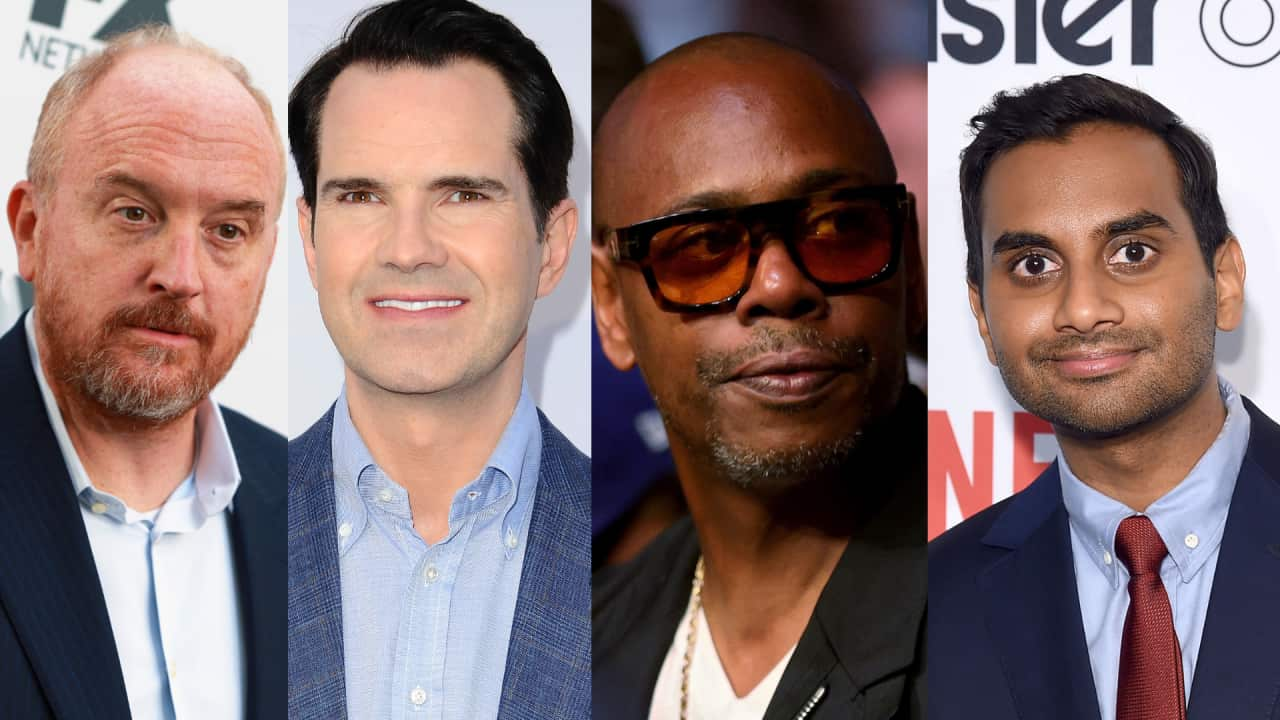A Saudi Arabian comedy festival has attracted criticisms from human rights advocacy organisations and members of the international community for "whitewashing" the country's human rights record.
The Riyadh Comedy Festival, which started on 26 September and is scheduled to conclude on 9 October, features major international talent, including comedians Dave Chappelle, Kevin Hart, Aziz Ansari, Bill Burr, Jimmy Carr, Louis CK, and Jack Whitehall.
But the performing comedians and the festival have faced marked criticism in recent weeks due to Saudi Arabia's track record of alleged human rights violations, including repression of free speech, executions of political dissidents, and discrimination against women.
International human rights organisations, including Human Rights Watch and Amnesty International, have spoken out against the festival and the involvement of international talent.
Kyinzom Dhongdue, strategy and advocacy manager at Amnesty International Australia, told SBS News Saudi Arabia is using the Riyadh Comedy Festival to "distract the world from its brutal human rights record" and the involvement of major comedians from the United States and the United Kingdom is "disappointing".
"I mean, let's not forget that this festival falls on the seventh anniversary of the state-sanctioned murder of Saudi journalist Jamal Khashoggi, and also this is happening months after the Saudi Arabian government has executed a journalist," Dhongdue said.
Khashoggi, a US-based dissident journalist, was killed in the Saudi consulate in Istanbul in 2018 by a team of Saudi agents, an operation which US intelligence believed was ordered by Crown Prince Mohammed bin Salman.
According to a declassified US intelligence assessment released in 2021, Salman approved the operation to capture or kill Khashoggi, despite denials from Saudi officials that the de facto ruler had any involvement.
Members of the comedy community have also spoken out against their peers' involvement in the festival, including those who declined the invitation.
Marc Maron, comedian and host of the WTF podcast, said in a video posted to Instagram that he was not asked to perform at the comedy festival but commented on the source of payment for the comedians involved, referencing the assassination of Khashoggi and the crown prince's suspected involvement in his murder.
Atsuko Okatsuka, a US comedian, posted to Threads over the weekend, stating she had turned down an offer and published what she said were the restrictions outlined in the contract.
The restrictions reportedly stated the comedian would agree not to "perform any material that may be considered to degrade, defame, or bring into public disrepute, contempt, scandal, embarrassment or ridicule" Saudi Arabia, its leaders, public figures, culture or people, the Saudi royal family, legal system, government or any religion, religious tradition or religious practice.
US comedian Tim Dillon, who had previously stated the festival was paying him US$375,000 ($569,000) for a set, which he considered enough to "look the other way", later said he was dropped from the festival's bill because of jokes he had previously made about Saudi Arabia's alleged use of forced labour.
Human rights abuses
There have been long-held international concerns about human rights in Saudi Arabia, where Amnesty International says "human rights are ignored, their freedoms are restricted and punishment is severe".
Dhongdue said Saudi Arabia has one of the "most regressive environments for free speech in the world" and peaceful critics of the government, journalists and women activists are "routinely silenced, whether through arbitrary detention, torture, unfair trials and even execution".
Human Rights Watch says executions have surged in Saudi Arabia this year, with Saudi authorities executing at least 241 people in 2025 as of 5 August, including a journalist and a political analyst.
Turki al-Jassar, a journalist for an independent newspaper who was known for exposing alleged corruption in the Saudi royal family, was executed in June after his arrest in 2018 and alleged torture in al-Ha'ir prison.
In August, women's rights activist and fitness influencer Manahel al-Otaibi was resentenced to five years' imprisonment after initially being sentenced in 2024 to 11 years in prison for "terrorist offences" in a secret trial, according to Amnesty International.
Dhongdue said she was sentenced "simply because of her choice of clothing and her support for women's rights in Saudi Arabia".
Why is Saudi Arabia holding a comedy festival?
Dhongdue said the comedy festival is directly tied to Vision 2030, the crown prince's blueprint for the economic transformation of Saudi Arabia, which states the country is now investing heavily in sectors like tourism and entertainment.
Sports events, music and comedy have all been key investment focuses for Vision 2030, and Dhongdue said the Saudi government is spending "billions" to improve its international image.
Human Rights Watch said the investment in Saudi Arabia's entertainment industry, alongside some social and economic advances for women and young people, has distracted from the alleged violations committed in the Middle Eastern nation.
Joey Shea, a researcher from Human Rights Watch, said Saudi Arabia has encouraged comedians performing at the festival to "speak out against Saudi Arabia's serious human rights abuses" or risk "bolstering the Saudi government's well-funded efforts to launder its image".
Dhondue said the comedians should now either use the stage in Saudi Arabia or platforms afterwards to raise awareness about Saudi Arabia's human rights record.
"They are getting paid by this regime, so it's their responsibility to speak out and call for the release of the human rights activists and defenders."
For the latest from SBS News, download our app and subscribe to our newsletter.

